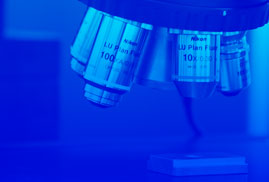Zero Defects Manufacturing or just ZDM is one of the main goals of the called Advanced Manufacturing. Sectors as critical as the aeronautical, the railway, the automotive or the wind require increasingly more supervision of each of the parts that are part of the engines or other critical elements that they produce and assemble.
On the other hand, in a context of globalization in which a large part of products are manufactured in Asian countries due to their low costs, manufacturing without defects aims at the excellence of production. This would open a scenario that would reactivate the strength of European companies which several decades ago committed to offshoring and today observe that only with quality products will they be able to recover their markets. "Zero Defects Manufacturing can help shore up our industries because we speak of excellence in production systems, which can lead us to mitigate the threat of globalization by Asian countries. We have to try to do it right at the first time, maintaining excellence and even increasing jobs. If we manage to manufacture better and avoid rework we can achieve it”, explains Arrieta.
Zero Defects Manufacturing is a complex strategy that encompasses all phases of the production: "It is about monitoring what happens throughout the production process: from the design phase to manufacturing and assembly. You have to review everything from the beginning, because if something is wrong in the first stages of production, it will end up affecting the last ones”.
One of the keys of the Zero Defects Manufacturing is how to detect those defects in any of the manufacturing processes and the parts that are manufactured. “Thanks to sensors, we can detect parameters related to the stresses that a piece supports, noise, wear particles that are present in fluids, etc. “This allows us to identify the different types of defects in each phase. In high-compromise pieces that affect 'comfort' or safety, such as those intended for the automotive industry, the railway sector, aeronautics, the construction of wind turbines or gas steam; you cannot afford mistakes in manufacturing, "remembers Arrieta. A very relevant aspect in this sense is the capability to capture and analyze data. Data analytics and machine learning techniques are essential tools for zero defect manufacturing since they support decision making and recommend improvement actions.
Finally, it is worth to remember
that Zero Defects Manufacturing involves processes but also the products
themselves along their production cycle and the services involved.
Again, sensoring, capturing and analyzing capabilities are more and more
allowing to anticipate problems and react, for instance, whether it is a
part defect or a machine failure.


